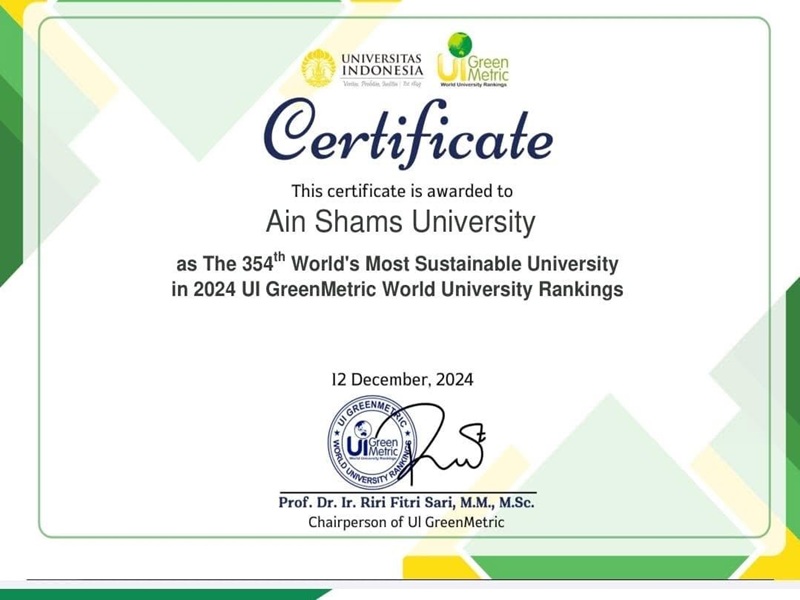Ain Shams University ranks among the top 24% of universities worldwide in sustainability rankings
Under the patronage of Prof. Mohamed Diaa Zain El-Abedeen, President of Ain Shams University, and Prof. Ghada Farouk, Vice President for Community Service and Environmental Development Affairs, and under the supervision of Dr. Ahmed El-Banna, Director of the International Rankings Department, and Dr. Ahmed El-Awady, Director of the Center of Excellence for Sustainability, Ain Shams University has achieved remarkable progress globally in the QS Sustainability Rankings. In its latest edition, the university advanced 121 positions to rank 574th globally and second nationally, compared to its previous position of 695th last year.
The QS Sustainability Rankings evaluate universities based on three primary criteria: environmental impact, social impact, and governance. These criteria are further divided into eight sub-categories that measure the university's influence on society and academia in environmental and social dimensions.
In the same context, Ain Shams University also advanced in the Green Metric Ranking, which focuses on universities' green growth and sustainability efforts. Nationally, the university climbed to fifth place from sixth last year, and globally, it ranked 354th among 1,477 universities and academic institutions participating in this year’s rankings. This achievement places Ain Shams University among the top 24% of universities worldwide in environmental sustainability, even with the addition of 290 new universities to this year’s rankings.
The Green Metric Ranking assesses universities based on six key criteria: advancements in scientific research, water consumption, energy consumption, solid waste management, sustainable transportation, and sustainable infrastructure.
Prof. Ghada Farouk emphasized the university’s commitment to becoming a "Smart, Green, and Sustainable University." She highlighted the rich history of Ain Shams University, which is celebrating its 75th anniversary, positioning it with the challenge of achieving sustainability compared to newer universities.
She also noted that the university has taken significant steps toward the governance of electricity and water usage, solid waste management, internal transportation, community standards, risk management, and carbon emission measurements. Efforts from various departments within the university have collectively contributed to these accomplishments.



.svg)

